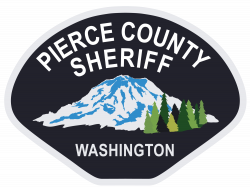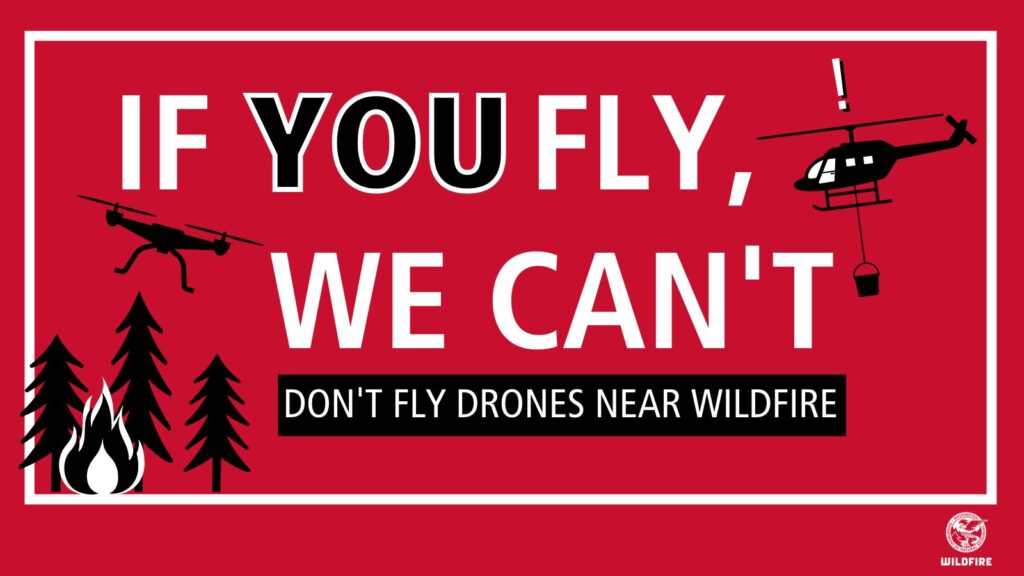Over the past month, fire crews have battled numerous brush fires throughout Pierce County. As hot temperatures and dry conditions persist, we expect to see this trend continue. While drone operators may find it tempting to get footage of the fires, we’re reminding you today that not only is this dangerous, but it is also illegal.
Firefighting aircraft operate at low altitudes, often just a few hundred feet above the ground, which coincides with the altitude range of drones flown by individuals and other entities. This proximity poses a significant risk of mid-air collisions or distractions for pilots, potentially resulting in severe or even fatal accidents.
If You Fly, Firefighters Can’t
Flying a drone near a wildfire is dangerous and can cost lives. When people fly drones near wildfires, fire response agencies often ground their aircraft to avoid the potential for a midair collision. Delaying airborne response poses a threat to firefighters on the ground, residents and property in nearby communities, and it can allow wildfires to grow larger. Sadly, these incidents occur on a regular basis.
In recent years, there have been more than 100 documented cases of unauthorized drones flying near wildfires. Your photos and video footage of the wildfires are not worth the lives and crucial operations they jeopardize. The National Interagency Fire Center (NIFC) says it best: If You Fly, We Can’t
Know the Rules
The FAA often implements Temporary Flight Restrictions (TFRs) (https://bit.ly/3Q1GrrE) around wildfires to protect aircraft that are involved in the firefighting operation. All aircraft, including drones, are prohibited from flying in the restricted area unless they’re operated by an agency that’s involved in the firefighting operation. Even if a TFR is not in place, drone pilots should avoid flying near wildfires. It’s a federal crime to interfere with firefighting aircraft regardless of whether restrictions are established, and violators can face stiff penalties.
Penalties
It’s a federal crime, punishable by up to 12 months in prison, to interfere with firefighting efforts on public lands. Additionally, Congress has authorized the FAA to impose a civil penalty of up to $20,000 against any drone pilot who interferes with wildfire suppression, law enforcement or emergency response operations.
The FAA treats these violations seriously, and will immediately consider swift enforcement action for these offenses.
If you see someone illegally operating a drone during a wildfire, please call 911 and also report it to the Federal Aviation Administration’s (FAA) Seattle Field Office: https://bit.ly/3K96o4T

